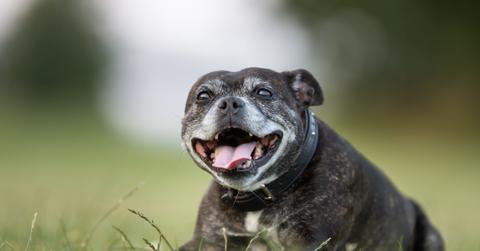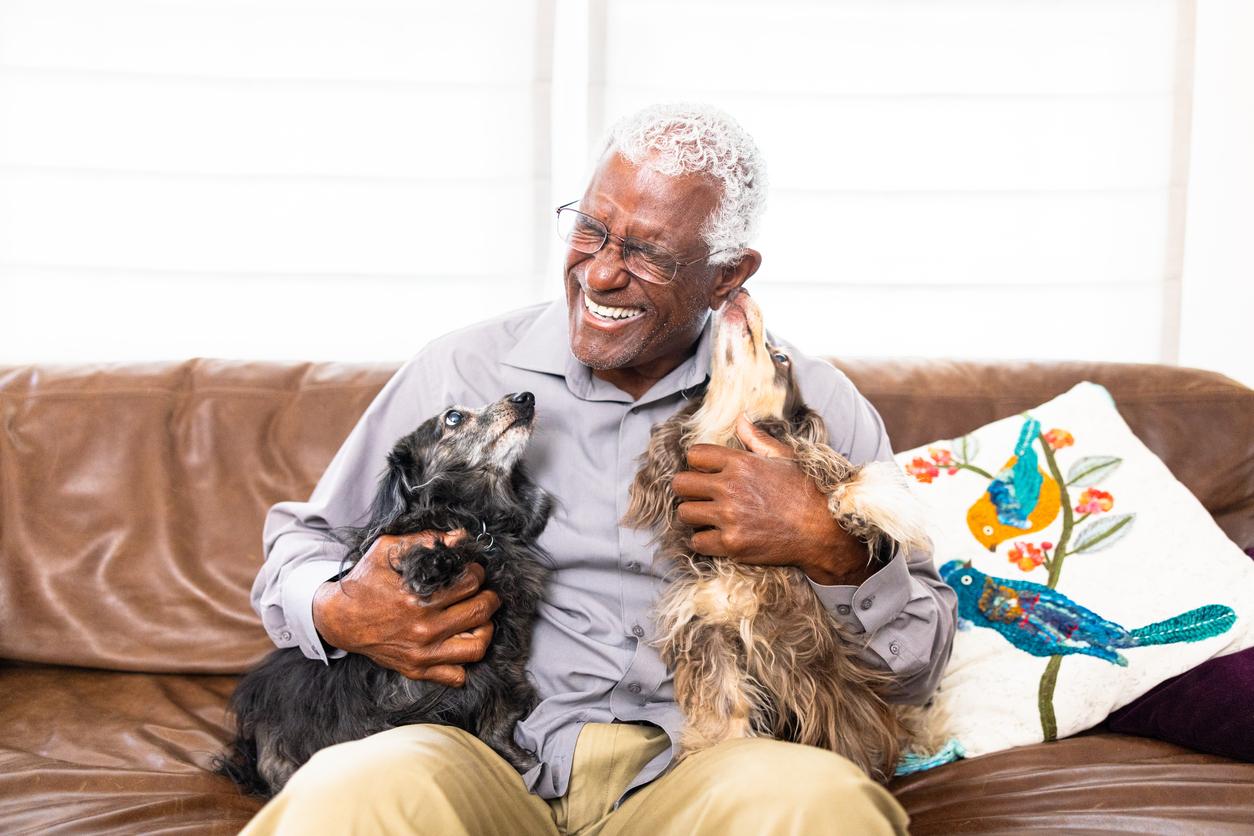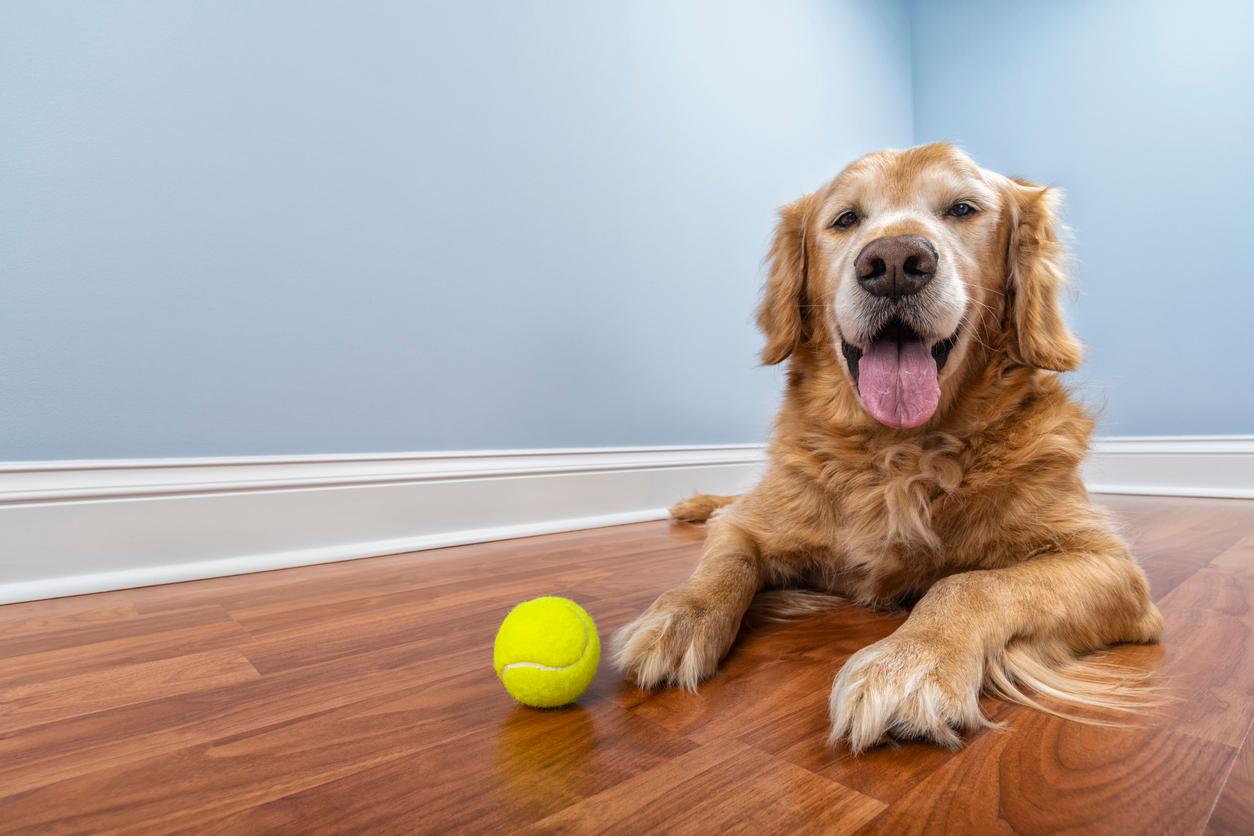If Dogs Age at a More Accelerated Rate Than Humans, When Is a Dog Considered a Senior?
Senior dogs are every bit as lovable, loyal, and intelligent as their younger counterparts.
Published April 2 2024, 11:55 a.m. ET

Whether you're adopting a senior dog to share their companionate love with you or exploring the many benefits of fostering, opening your home to a senior dog as the older sibling to show a younger pup the ropes can be incredibly beneficial for dogs and humans alike. Naturally, the only question left is: what age is a senior dog?
Just how reliable is the old adage that dogs age seven years for every year humans age? Join us as we uncover how old a senior dog must be to earn the label and how to determine if your gray-bearded older dog with limitless love to give is, in fact, a senior.

When is a dog considered a senior?
Depending on a few factors, dogs are considered seniors between six and 12. According to California-based Riverside Animal Hospital, a dog's breed and general size affect their age rate.
Per Riverside Animal Hospital, these are the general age ranges that guide when a dog is considered a senior:
- Small breeds: 10 to 12 years old.
- Medium breeds: eight to nine years old.
- Large breeds: six to seven years old.
As it turns out, the rudimentary mathematical estimate of multiplying a dog's age by seven doesn't hold much merit, as there are much more predictable factors to consider, according to VCA Animal Hospitals.
For the most part, according to the VCA, smaller dogs enjoy longer life spans while larger dogs age at a more accelerated pace, thereby affording them shorter life spans.
As VCA notes, development in the first two years of a dog's life is more accelerated than the 7:1 ratio; in VCA's estimate, one dog year is the equivalent of 10.5 human years during this period of rapid development.
"What is consistent is the fact that dogs age more rapidly than their owners," writes Ryan Llera, BSc, DVM, and Lynn Buzhardt, DVM.

How to determine if your dog is a senior.
According to Vetnique Labs, some helpful ages upon which common breeds of family dogs are typically considered seniors include:
- Chihuahua, Pug, and Yorkie: 11 to 12 years old.
- Bulldog, Boxer, Dalmatian: 10 years old.
- German Shepherd, Labrador and Golden Retrievers, Rottweiler, and Australian Shepherd: after turning eight.
- Great Dane, Newfoundland, and Bernese Mountain Dog: after turning seven.
When considering whether your dog is a senior, it also helps to look at their size rather than just their breed. For example, VCA explains that while a small Poodle is likely to live longer than a larger Great Dane, that same Great Dane can outlive a larger Bulldog.
In this example, a dog's exceptional size matters more than their breed alone, adding context to the predictors for a dog's life span.
Although your dog may be approaching senior age, there are physical signs to help assess how healthily your dog is aging. According to the American Kennel Club (AKC), some signs of aging include eye cloudiness, bad breath, physical weakness, and changes in appetite and bathroom abilities.
As VCA notes, some of the more noticeable signs of aging in dogs include loss of vision and hearing and changes to their physical appearance, such as loss of teeth, hair, and muscle tone.
There are mental signs of aging in dogs, too. According to the AKC, you may notice senior dogs sleeping more often, changes in their usual demeanor, increased anxiety or confusion, and other cognitive and emotional signs.
Whether you would like to help your dog age gracefully or start noticing physical or mental signs of aging in your senior dog, support them with gentleness and love and consult your veterinarian every step of the way.